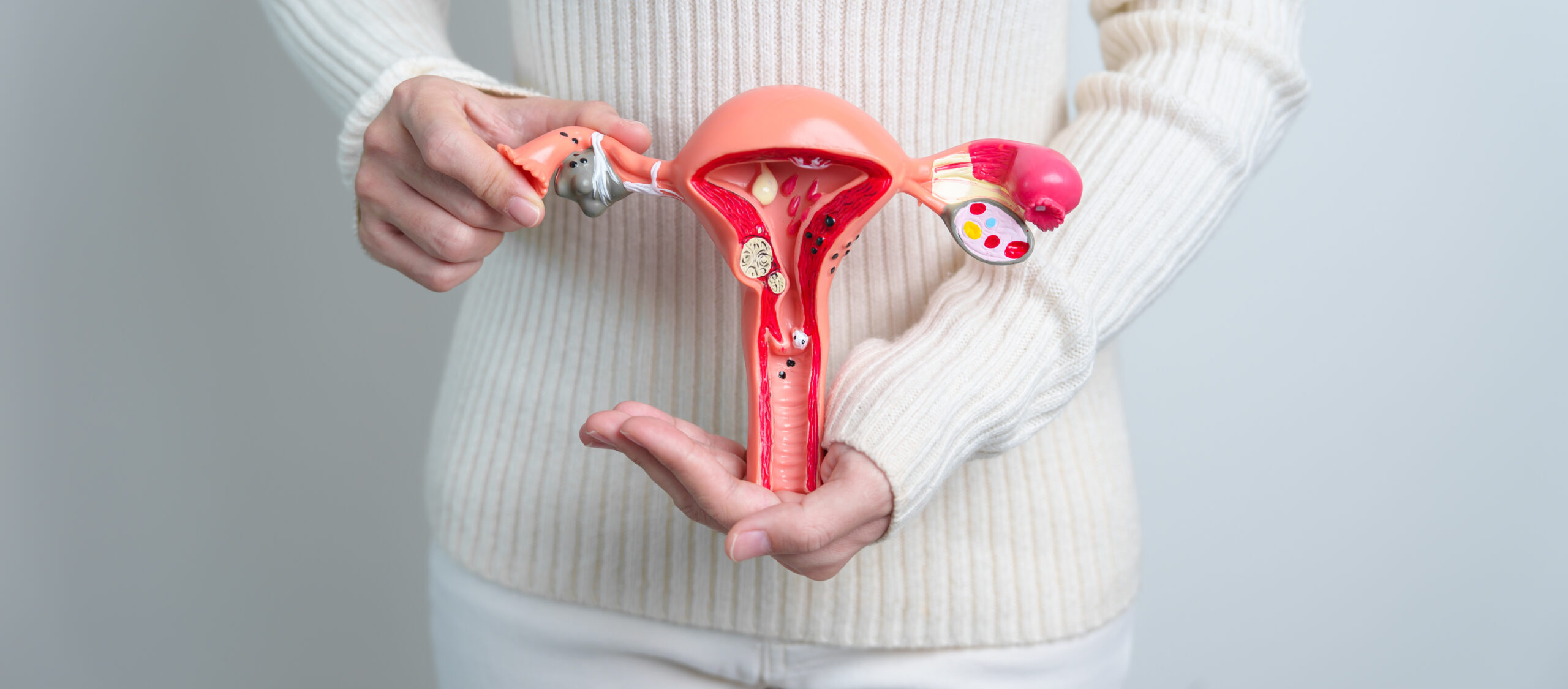Endometriosis is a medical condition where tissue similar to the lining of the uterus (endometrium) grows outside the uterus, typically in the pelvic region. It can have various effects on fertility, and its impact varies from person to person. Here’s how endometriosis can affect fertility:

Pelvic Adhesions and Scarring:
Endometriosis can lead to the formation of scar tissue (adhesions) around reproductive organs like the ovaries, fallopian tubes, and uterus. These adhesions can cause organs to stick together, potentially affecting egg release, fertilization, and embryo implantation.
Distorted Anatomy:
As endometrial tissue grows outside the uterus, it can distort the normal anatomy of the reproductive organs. This distortion may hinder the movement of eggs from the ovaries to the fallopian tubes, making it difficult for sperm to reach the egg for fertilization.
Inflammation:
The presence of endometrial tissue outside the uterus can cause chronic inflammation in the pelvic area. This inflammation may disrupt the function of the fallopian tubes and ovaries, impacting fertility.
Hormonal Imbalances:
Endometriosis can disrupt the balance of hormones responsible for regulating the menstrual cycle, ovulation, and implantation. Hormonal irregularities can interfere with the timing of ovulation and affect the development of a receptive uterine lining for embryo implantation.
Reduced Egg Quality:
Some research suggests that endometriosis may be associated with lower egg quality, potentially affecting the success of fertilization and embryo development.
Pain and Sexual Dysfunction:
The pain associated with endometriosis can lead to reduced sexual activity and discomfort during intercourse, which may impact conception.
Despite these potential challenges, many individuals with endometriosis are able to conceive naturally. However, for those who experience difficulties, there are various fertility treatments available:
Ovulation Induction:
Medications can be used to stimulate the ovaries and increase the chances of ovulation.
Intrauterine Insemination (IUI):
Sperm is directly placed into the uterus around the time of ovulation, bypassing potential obstacles in the fallopian tubes.
In Vitro Fertilization (IVF):
IVF involves retrieving eggs, fertilizing them with sperm in a laboratory, and transferring the resulting embryos into the uterus. IVF can overcome many of the challenges posed by endometriosis.
Laparoscopic Surgery:
Surgical removal of endometrial tissue, adhesions, and cysts can improve fertility by restoring normal anatomy and reducing inflammation.
If you’re struggling with fertility and have been diagnosed with endometriosis, it’s important to work closely with an endometriosis specialist then a reproductive specialist or fertility doctor. They can assess your individual situation, discuss treatment options, and help you make informed decisions about the best approach to achieving a successful pregnancy.


